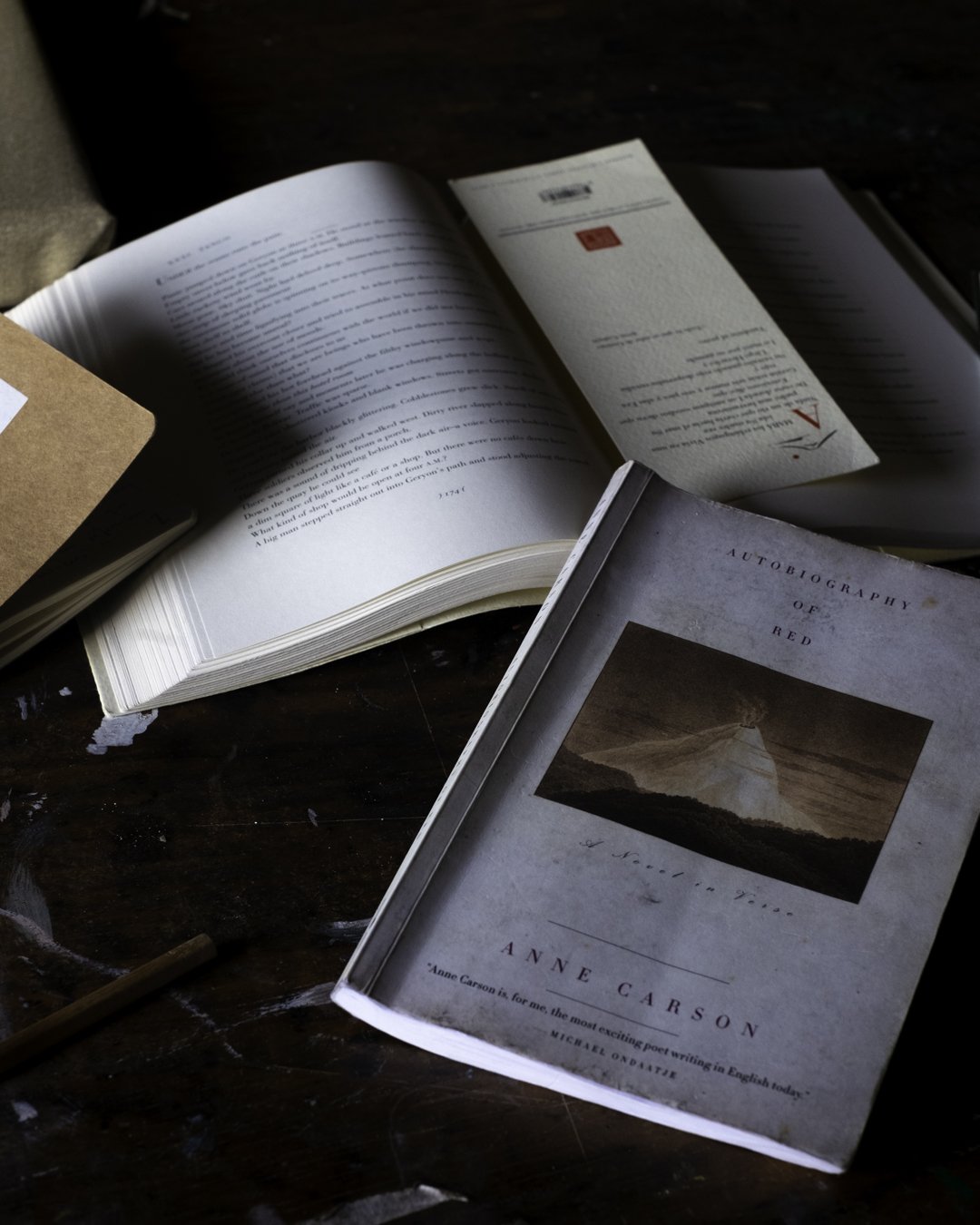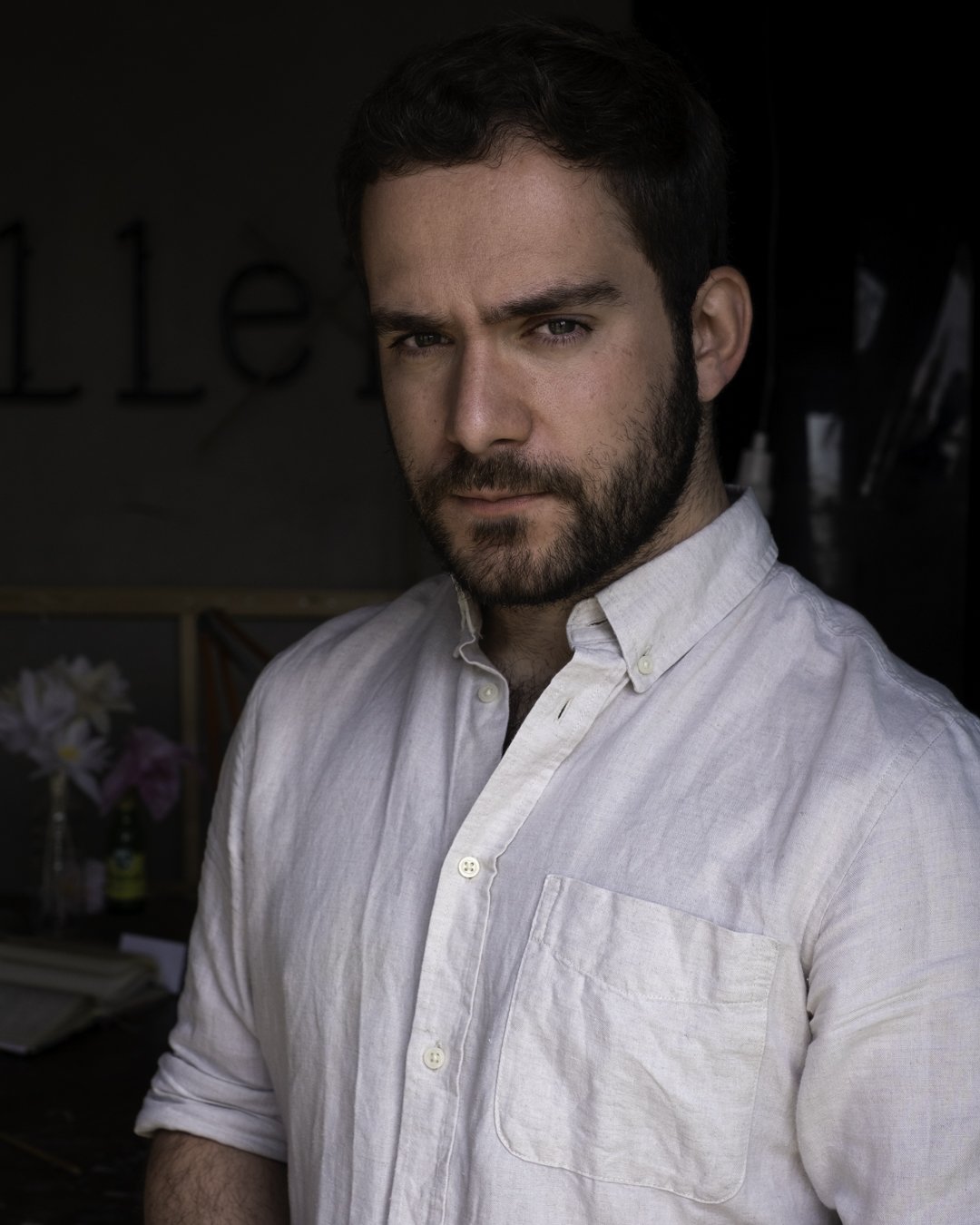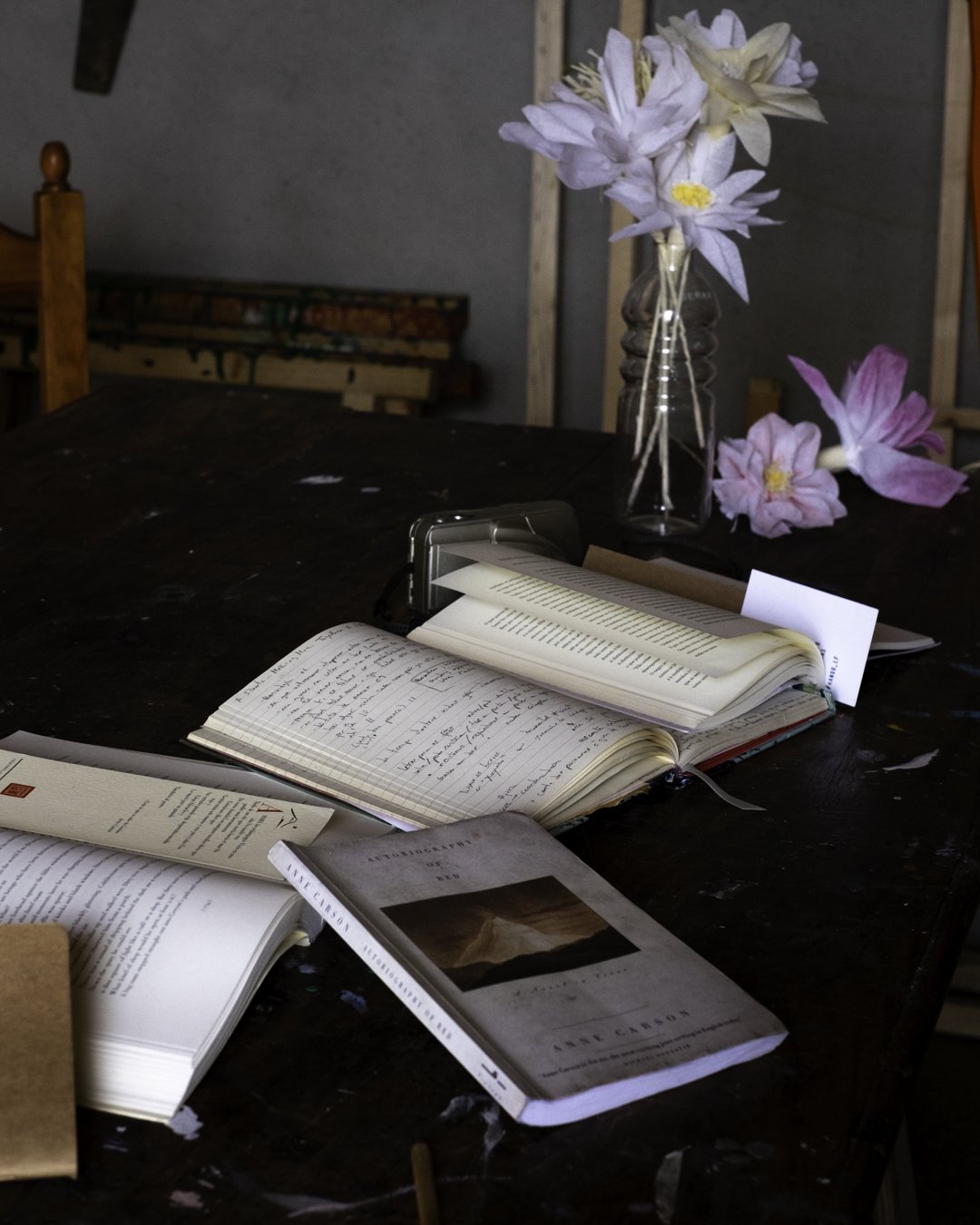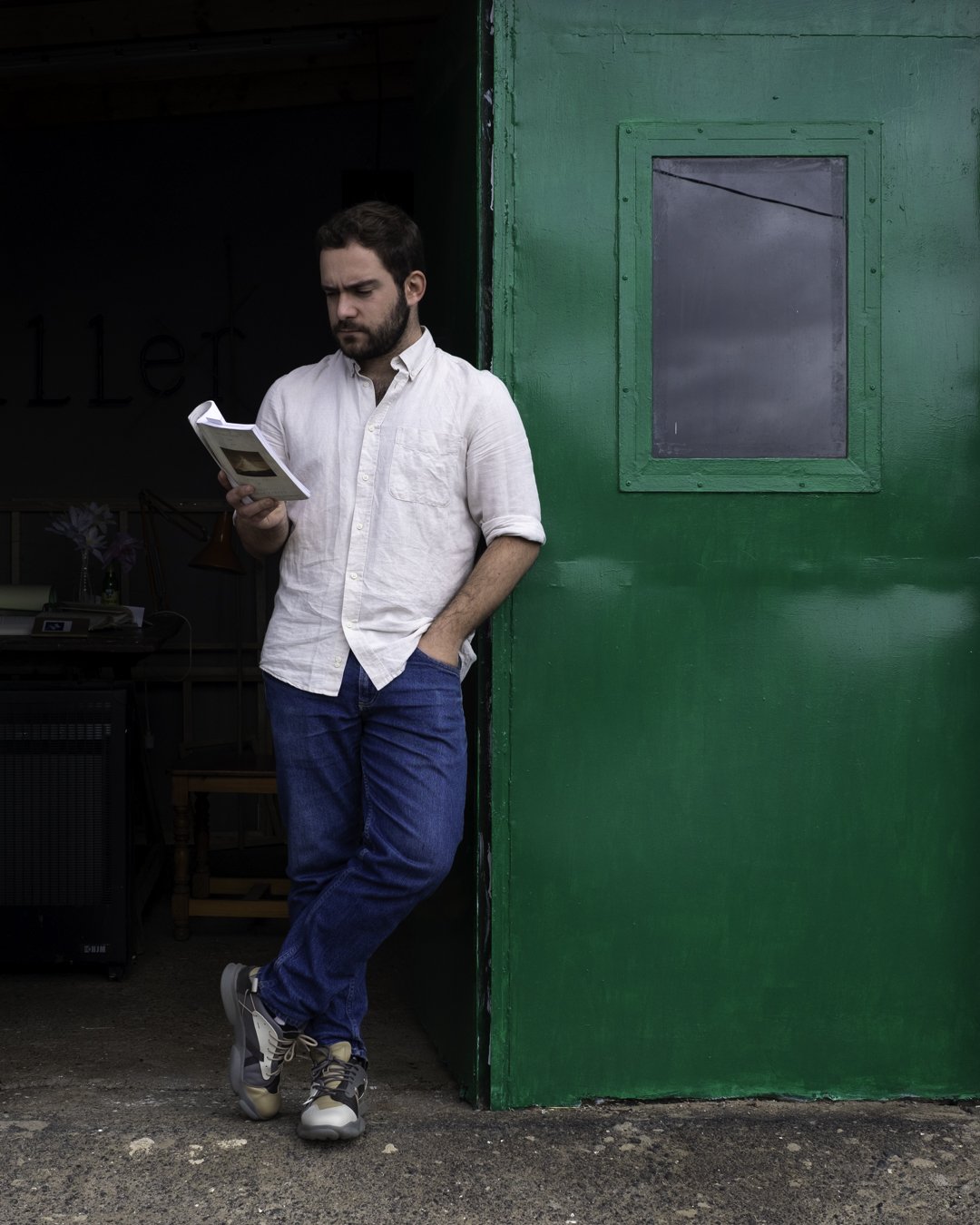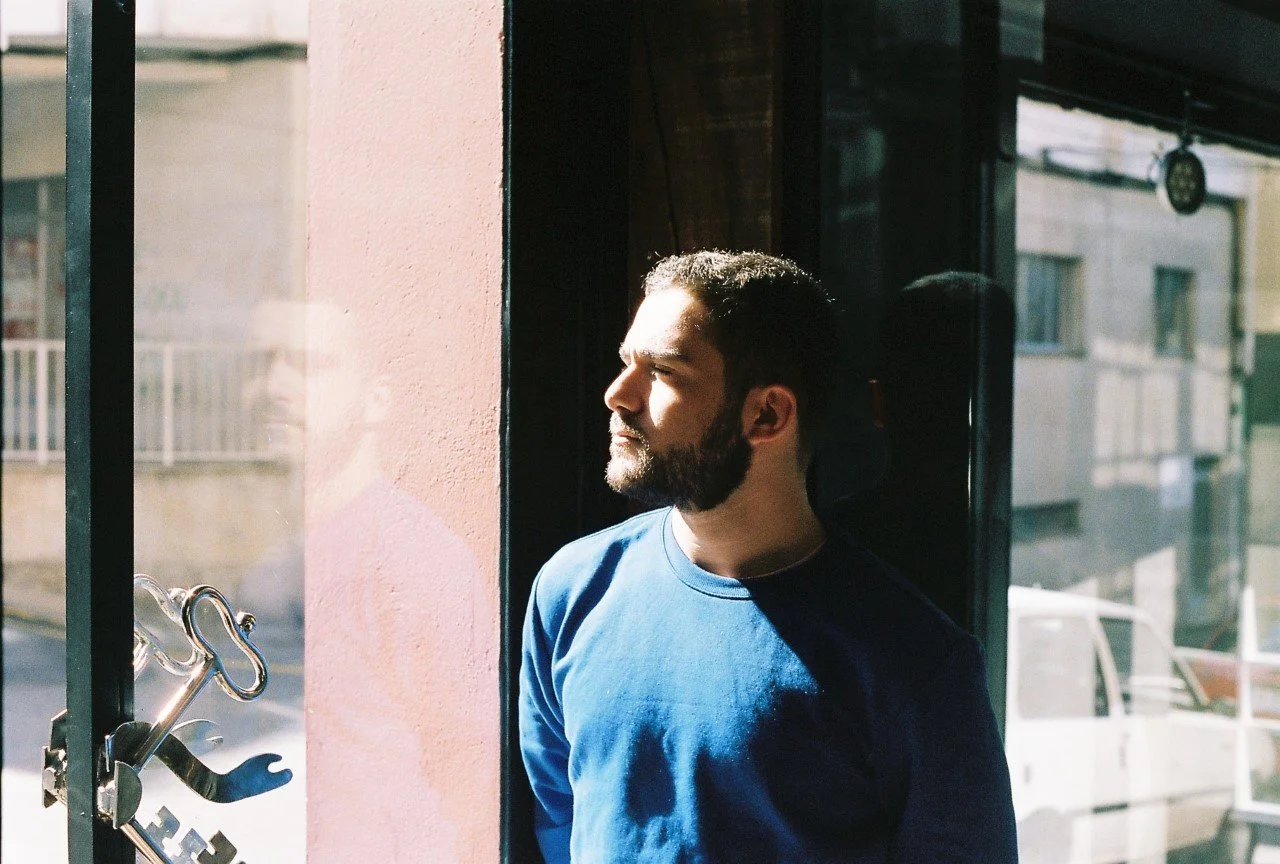Award-winning Galician poet and performer Jesús Castro Yáñez, Os nomes e os himnos (2016), /\/\/\ (2017), and Ultramarino (2017), edited Campo de Plumas, an anthology of queer poetry. His translation of Anne Carson’s The Anthropology of Water is forthcoming. He has represented Galicia in various international festivals and workshops and his work has been translated into Greek, Finnish and Slovenian.
All of my work is deeply associated with nature and therefore with the way territory shapes identity and every relation between each element that comprises it. This is one of the main reasons I’m drawn to this residency and its marvelous location.
I did not notice that my first book revolved around rivers that much until a critic review pointed it out. It is no coincidence that I grew up near the source of the main river in Galicia, Miño river. My second book, called Ultramarine and written when I was living beside the river mouth onto the sea, consists of poems and blueprint images both made of light and sea water. Maybe the next book I’m trying to write will be influenced by the archipelago. That would be a very appropriate image: the project I’m working on studies the idea of communal creation and intertextuality, and the existence of every poem as a palimpsest of all the previous ones existing out there, communicating with each other, sampling and remixing each other in an infinite array of possibilities. As islands, they seem to be floating on their own, but every voice is deep down making part of the same greater thing, coexisting and cooperating.
I’m also translating Anne Carson’s book Autobiography of Red, an exploration of identity and desire that retells a greek myth through the lens of a homosexual relationship between two young lovers. The volcanic imagery is omnipresent in the book and central to its development, so Hektor seems like a great place to keep working on the text and imbue it with that presence.

